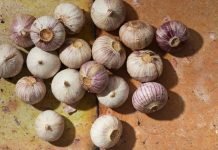
Scientists from Cornell University found caffeine tempers taste buds temporarily, making food and drink taste less sweet.
The research is published in the Journal of Food Science and was conducted by Robin Dando et al.
Caffeine is a powerful antagonist of adenosine receptors, which promote relaxation and sleepiness.
Suppressing the receptors awakens people but decreases their ability to taste sweetness—which, ironically, may make them desire it more. The current study demonstrates taste modulation in the real world.
In the study, one group of people sampled decaffeinated coffee with 200 milligrams of caffeine added in a laboratory setting, making a strong cup of coffee.
The stimulant was added to make that group’s coffee consistent with real-life amounts of caffeine. The other group drank just decaffeinated coffee.
Both groups had sugar added. Panelists who drank the caffeinated brew rated it as less sweet.
In a secondary part of the study, participants disclosed their level of alertness and estimated the amount of caffeine in their coffee.
Further, panelists reported the same increase in alertness after drinking either the caffeinated or decaffeinated samples, all the while panelists could not predict if they had consumed the decaffeinated or the caffeinated version.
The team says what seems to be important is the action of drinking that coffee. Just the action of thinking that you’ve done the things that make you feel more awake, makes you feel more awake.
Sign up for our newsletter for more information about this topic.
If you care about food and your health, please read studies about eating this food every week could prevent recurrent heart disease and findings of number of fast-food restaurant linked to heart attacks.
For more information about diet and wellness, please see recent studies about this stuff in popular foods may harm your immune system and results showing that this daily food may reduce your risks of diabetes and high blood pressure.
Copyright © 2022 Knowridge Science Report. All rights reserved.




